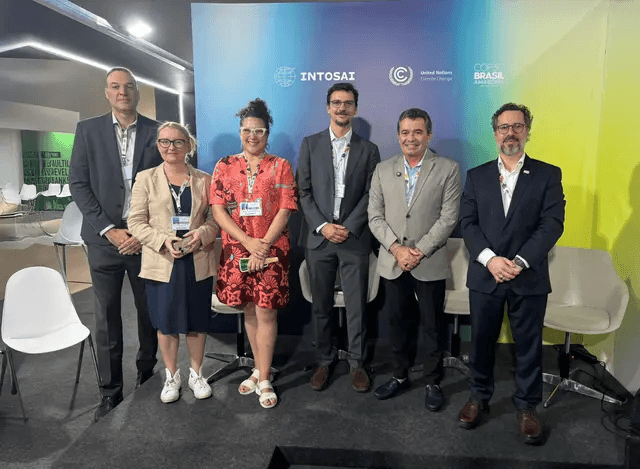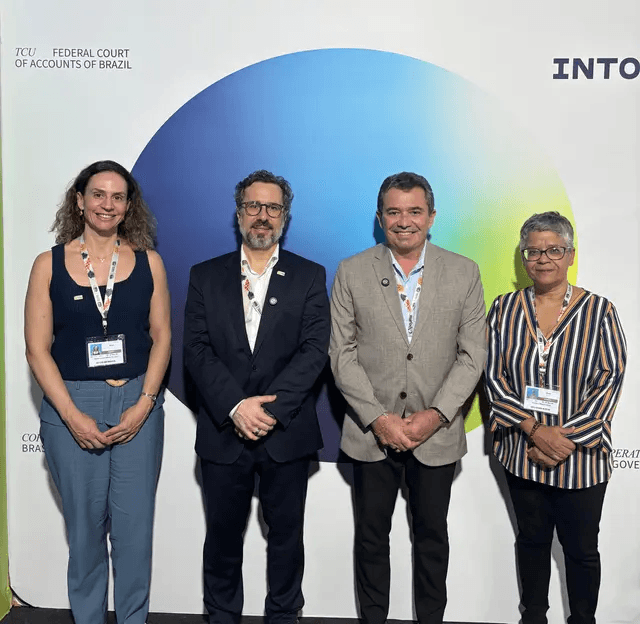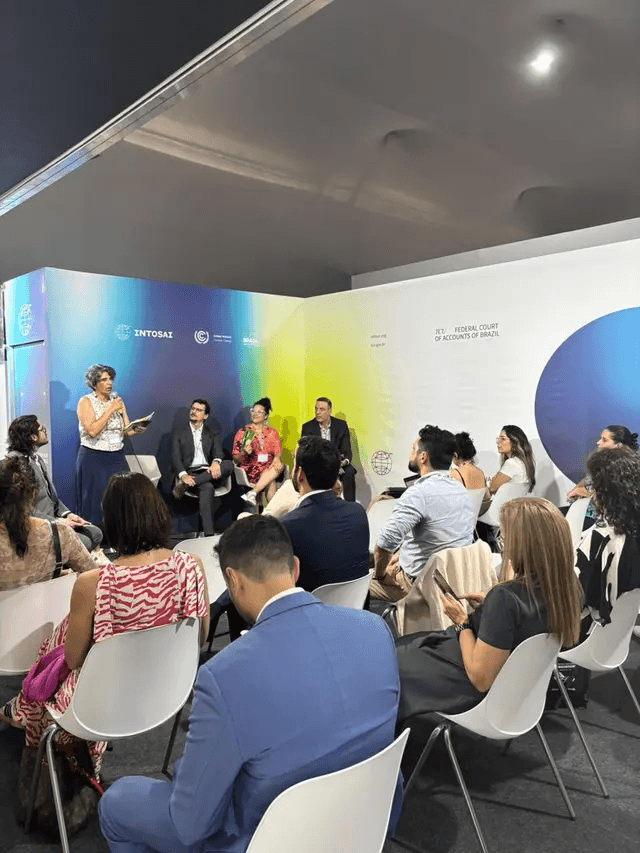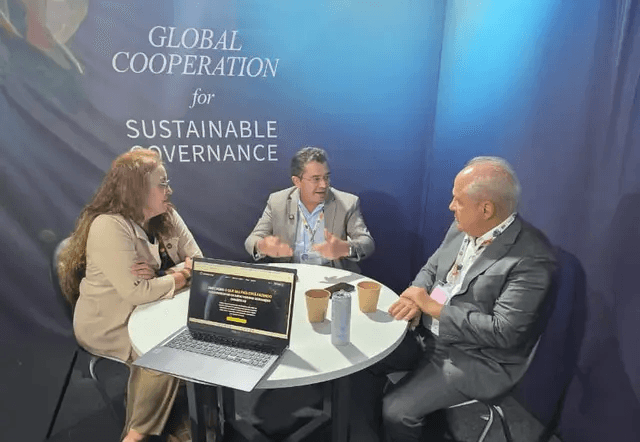TCU Inaugural Panel at COP30 Debates Climate Finance and Transparency
On Monday (11/10), representatives of the Court, BNDES, GFLAC and the NDC Partnership discussed ways to strengthen transparency and integrity in sustainable development initiatives
By Secom / Serint
The Brazilian Federal Court of Accounts (TCU) promoted, on November 10, the first technical panel at the International Organization of Supreme Audit Institutions (INTOSAI) Pavilion at COP30. The debate on "Promoting a global financing agenda through transparency and accountability" brought together representatives from the TCU, the Climate Finance Group for Latin America and the Caribbean (GFLAC), the NDC Partnership, and the Brazilian Development Bank (BNDES). The meeting addressed how transparency, integrity, and good governance can drive the global climate finance agenda.

Minister Vital do Rêgo, President of the TCU, opened the session, alongside Walter Baère (BNDES), Vivi Niemenmaa (INTOSAI Working Group on Environmental Auditing), Joaquim Leite (NDC Partnership), Sandra Guzmán (GFLAC), and Minister Vinícius Marques de Carvalho (Office of the Comptroller General of Brazil - CGU).
"Audit institutions play an essential role in promoting global climate governance. Through independent, evidence-based assessments, we can contribute to implementing more transparent, effective, and accountable climate policies that align with the commitments of the Paris Agreement. Additionally, we can persuade governments to prioritize citizens in climate policies, especially the most vulnerable, who are most strongly affected by climate change," noted Vital do Rêgo.
Audit institutions strengthen climate governance
The discussion highlighted the role of Supreme Audit Institutions (SAIs) in the independent assessment of public policies and finances, which is essential to ensure that the funds appropriated for combating climate change are applied efficiently and responsibly. The TCU presented ClimateScanner and Painel ClimaBrasil, initiatives that monitor government actions related to climate mitigation, adaptation, and financing at the national, state, and municipal levels.

"Reliable data contributes to ensuring good governance in climate finance. Audit institutions work strategically in this context, by ensuring that public resources designated for climate action are used transparently and responsibly, aligned with international commitments. Initiatives such as ClimateScanner and the Painel ClimaBrasil strengthen this process by revealing advances and shortcomings in government action, promoting citizen participation in oversight, and guiding future planning of audit institutions," added TCU auditor Cintia Zaira, who mediated the panel.
GFLAC introduced the Sustainable Finance Index (SFI), a tool that measures the coherence of public finances with low-carbon development and pointed out gaps and opportunities for fiscal realignment. BNDES and the NDC Partnership provided complementary perspectives on financing, international cooperation, and technical support for the implementation of the Nationally Determined Contributions (NDCs). NDC refers to commitments made by countries to reduce greenhouse gas emissions and adapt to climate change impacts.

The debate reinforced the importance of integrating public policy auditing and monitoring methodologies, promoting more transparency in climate resource management. Additionally, it demonstrated pathways for technical cooperation between audit institutions, public banks, and international organizations, supporting accountability and global governance in the transition to a sustainable economy.
Rapprochement meetings
TCU's president agenda included meetings with Minister Vinicius Marques de Carvalho (CGU), Maíra Milani Lima (General Coordinator of the Audit Department for Climate and Environment Affairs), and Eveline Martins Brito (Executive Secretary), to address collaboration between the institutions in the climate sector.

Vital do Rêgo also met with Fernando Ribeiro, President of the State Court of Accounts of Pará (TCE-PA), and Deila Maia, Internal Affairs Officer of the Public Prosecution Office within the TCU at the State of Pará. They discussed the Painel ClimaBrasil initiative that had its results presented on Tuesday, November 11, at 10 a.m., at the Brazil Pavilion at COP30.
Read more: Brazilian Federal Court of Accounts presents ClimateScanner results at COP30